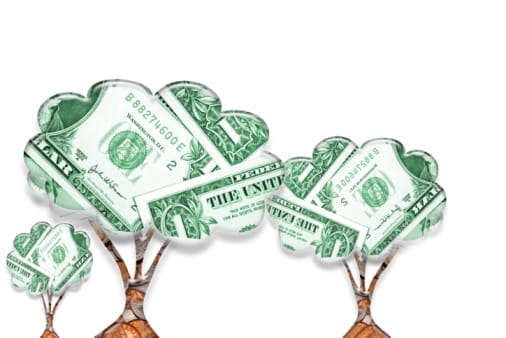In light of the tragic events unfolding in Japan and across the world this past week, it seemed appropriate to revisit another recent crisis as we look to find a way forward.
At this moment, what matters most is the extent to which basic human needs such as water, food, safety, and moral support are being met. Recovery over time, despite pervasive uncertainty, will also demand the efforts of strong political, scientific, economic, financial and investment policy. On the latter in particular, I look to my Jewish values for guidance.
At the height of the global financial crisis, my Rabbi asked me to speak to our congregation about the “Torah of money.” As a managing director at a large investment bank, I had perspectives to share regarding the genesis and complexities of the world’s economic plight. I was seeking a paradigm to make the connection to the Torah and to plan a way forward. There is, of course, tzedakah, where Torah and money go hand in hand. However, tzedakah is about more than just giving money to charity. For those of us in the investment world, handling more money than most people can even conceive of, it is imperative that we think about ethical and sustainable investment as central to our profession.
Navigating an investment landscape that is laden with geopolitical, global macroeceonomic, fiscal and monetary policy risk poses huge challenges. Also, in many instances, forces are at work that incentivize short-term thinking on the part of market participants who may not recognize the incredible limits of our knowledge of the future. Since investors, shareholders, employees, communities and corporate management teams may have conflicting agendas and be at cross-purposes, we need a roadmap.
So, with my industry under attack, and knowing that the best (and, although of late, forgotten), heritage of investment banks is to facilitate the world’s flow of capital and to help manage risk, I stood in front of my congregation determined to find a link between what I do for a living and what I can do to give back. How can individuals within such a massive and powerful industry help to make the world a healthier place?
The inspiration came from the Mishnah phrase tikkun olam, or “repairing the world.” This has helped guide me to find the answer in “Sustainable Investing,” and to expand my understanding of tzedakah. In this context I ask: How do you invest to achieve good financial returns while contributing to the world’s well-being?
Just as great companies make decisions to invest for the long term even if today’s quarterly earnings report may not reflect the ultimate value that is being created, investors must think about long-term, risk-adjusted returns. We need to integrate the factors of Environmental, Social and Governance (ESG) into the investment decision-making process. In this way, we can more effectively do financial analysis on companies that may also be practicing our values. Consistent with thinking about the potential financial gains or losses from an investment, is an understanding of the inherent conflicts that may exist in pursuit of strong investment returns.
As a specific example, if an industrial manufacturing or retail company hit by tough economic times is struggling to meet its sales targets, investors can still demand certain labor practices and high quality management of the supply chain as it restructures and properly manages any reputational risk from its actions. In another case, when investing in a company in the energy sector, we can look to measures that are taken to reduce its carbon footprint, slow climate change and mitigate any environmental impact by monitoring its exploration and production processes. And further, when contemplating the purchase of shares in a bank or other financial institution, there is a critical need to understand the extent to which the company’s capital base and regulatory compliance is strong, its employee morale is solid and its succession and compensation plans have robust controls. Finally, we can point to all the exciting opportunities for growth and employment that come from investing across the technology sector, where companies can successfully innovate and build world-leading companies offering everything from smartphones and solar power modules to smart grids and cloud computing solutions. Investors must make the effort to understand the extent to which these management teams face the challenges of attracting creative and entrepreneurial talent by tapping into a diverse and well educated pool of candidates. We can also ask how companies in this sector handle the safe disposal and treatment of electronic materials and waste if they sit in power-hungry industries such as semiconductor manufacturing.
In all of these examples, companies will be utilizing scarce resources and spending money to optimize their ultimate profitability and thus the outcome for shareholders. Every individual in the corporate and financial world, when faced with ESG questions, will be forced to make his or her own decisions. I choose to be guided by principles. There are always alternatives. There are always tradeoffs. There is always compromise. Again, I strongly believe that positive ESG investment practices should yield higher long-term returns. And, they are entirely aligned with my ethical Jewish values.
In the Talmud, Rabbi Tarfon states: “It is not incumbent upon you to complete the work, but neither are you at liberty to desist from it” (Avot 2:21). For my part, I will do everything I can to integrate ESG into my products and processes and push it into today’s mainstream global investing practices. I know that the burden of fixing every societal wrong does not rest on the shoulders of any one individual, but as a proud Jewish woman with a voice, I must do my share. If I do my job optimally, everyday, then the choices I make in my professional life will be those that help make the world a better place. “Sustainable Investing” is an inevitable mega-trend of the future, and is exquisitely consistent with the practices of those of us in the global financial community who embrace the principles of tikkun olam.

























